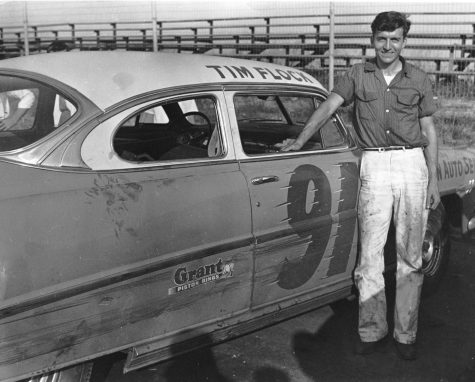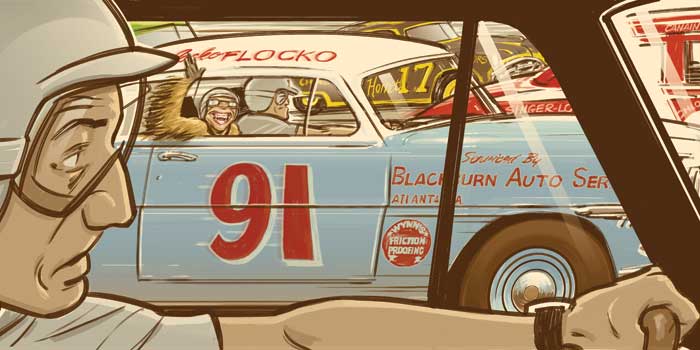NASCAR Monkey: The Wild Tale of Jocko Flocko
March 30, 2023
In 2023, the idea of a co-driver in a race car is not too foreign, as co-drivers were once used in IndyCar to look out for other drivers on track, and today are essential in rallying for calling out the pacenotes. Even X-Trial dirt bike riders utilize spotters to help guide them through gaps and jumps. However, the only instance of a co-driver appearing in NASCAR was not even a human. This is the crazy story of Jocko Flocko.
Who was Jocko Flocko?
In 1953, Ted Chester, sponsor of NASCAR driver Tim Flock, decided to organize a publicity stunt to attract more attention on the racetrack. He gave Flock a rhesus monkey, dubbed Jocko Flocko, to ride in the car with him during races. Jocko had his own uniform and custom race seat, which he was harnessed into while Flock drove. Jocko debuted at the fifth race of the season at the now-defunct Charlotte Speedway (not to be confused with today’s Charlotte Motor Speedway). The race went off without a hitch, as the duo finished fourth. Their high-placing finishes continued consistently, including a victory at Hickory Speedway. Jocko continued to be a hit with fans, until an accident occurred only two weeks later.
The Incident
At the 1953 Raleigh 300, Jocko found a way to escape his harness and climb around the car, distracting Flock. The situation intensified when Jocko stuck his head out of a trapdoor in the floor, and was struck by a pebble. Although his injuries were minor, Jocko went ballistic, bouncing around the car and scratching Flock multiple times. Flock had no choice but to take to the pits and throw the monkey out of the car. In doing so, his chances of a race victory were crushed. (He placed third, which meant a pay difference of $600–over $6,000 today).
Jocko reportedly suffered trauma as a result of the incident, with an ensuing refusal to eat shortly leading to his euthanization. Afraid of saddening the youth, Flock would tell young fans of the monkey that he had been fired because the monkey didn’t know how to write an autograph.
Legacy
Although his story includes an unfortunate ending, Jocko is remembered as “The Fastest Monkey in the World,” a title he still carries to this day, despite the record being broken four years earlier in 1948 by Albert II, also a rhesus monkey, who set a speed of approximately 3,200 miles per hour aboard a V-2 rocket.
Jocko’s story is not very well-known today, but Tim Flock’s legend continues to live on after a successful 13-year-long career consisting of 39 race wins and two Cup Series championships. And in 2014, Flock was inducted into the NASCAR Hall of Fame, 16 years after his death.

Flock with his #91 Fabulous Hudson Hornet





